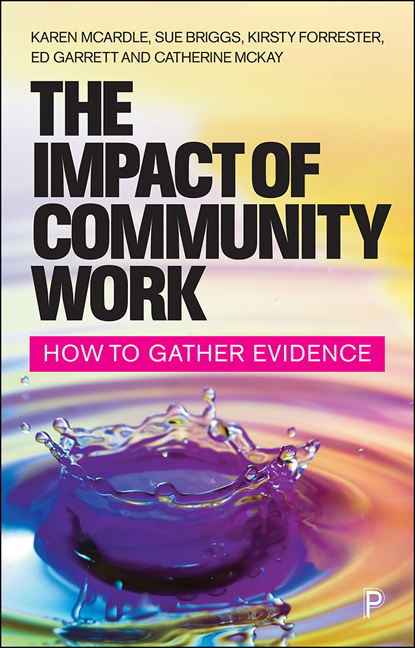10 - Collaborative and Participatory Approaches
Published online by Cambridge University Press: 10 March 2021
Summary
Introduction
Ultimately, participatory research is about respecting and understanding the people with whom researchers work. It is about developing a realization that local people are knowledgeable and that they, together with researchers, can work towards analyses and solutions. It involves recognizing the rights of those whom research concerns, enabling people to set their own agendas for research and development and so giving them ownership over the process. (Cornwall and Jewkes, 1995: 1675)
This quotation refers to the importance of respecting the people with whom we work and affirms that local people can work in a research or, we would say, evidence gathering, context. It also affirms the rights of these participants to set their own agendas for inquiry and to have ownership of the process. Participatory approaches can also be viewed from a more pragmatic perspective. The following quotation enumerates some of the practical advantages of participatory research.
[Participatory research] raises the likelihood that research questions and designs will be more responsive to community needs; that research executions will be more accurate in capturing community nuances; and that community members, having been brought into the research enterprise, will be more likely to pay attention to, agree with, and implement the recommendations of the research findings. (Jason, 2006, p xvii)
Approaches to gathering evidence that involve working together with participants are sometimes called collaborative approaches, and sometimes participatory approaches. Collaborative approaches typically involve communities of practice with different stakeholders functioning as co-inquirers (Messiou, 2019). Participatory approaches typically involve the clients, learners or service users. They are founded on the fundamental principle that most people can and will participate in the generation of evidence in a research-focused environment. Those who see research as an elitist and difficult activity find this approach hard to comprehend, but we are of the view that, with appropriate training and support, most people are well able to contribute at all stages of a research, inquiry and/or evidence-gathering activity should they choose to do so. It is important to accept this principle, if we genuinely believe in equality and inclusion. The following case study is an example of successful collaboration.
- Type
- Chapter
- Information
- The Impact of Community WorkHow to Gather Evidence, pp. 163 - 178Publisher: Bristol University PressPrint publication year: 2020

